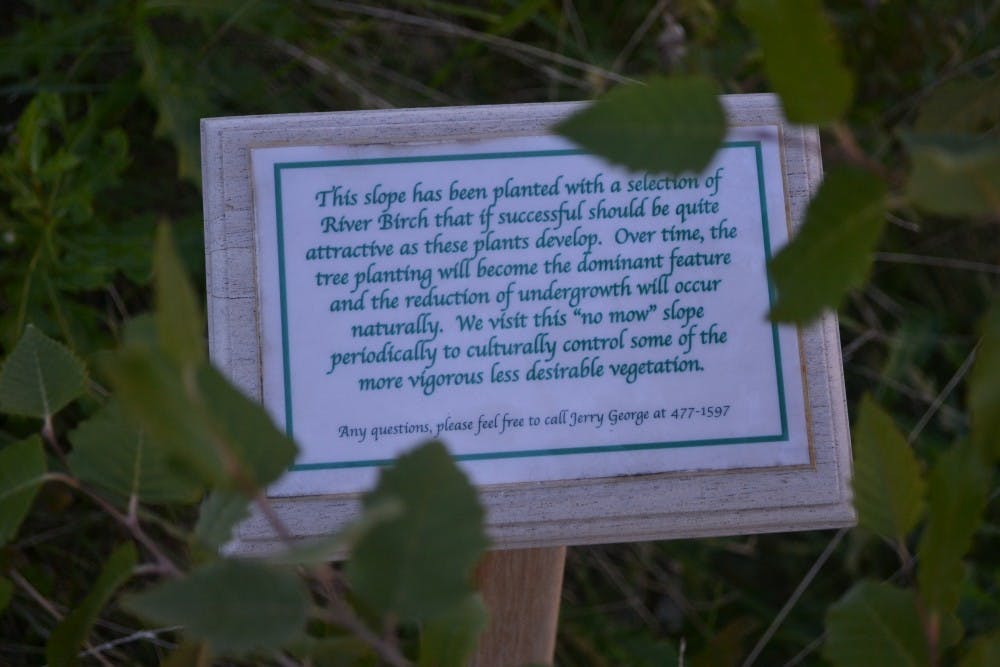The grounds crew and student participants at Shippensburg University have developed several naturalized areas throughout campus, mainly on steep slopes.
These sections of land are to be “no mow” areas, which means they do not need to be mowed by the grounds crew.
Since 2012, these spaces have decreased fossil fuel use and soil erosion and increased water retention. Plant and wildlife diversity have thrived on these areas of campus.
“Pesticides have not yet been needed in these natural areas. It is evident when walking through the areas how beneficial these plants are for insect life,” said Sarah Komisar, president of the Environmental Club.
“Just take a listen for yourself and hear the bugs at work.”
These areas have been planted with a variety of river birch closely planted together as they are in forests, which after more significant growth will become the dominant feature and reduce undergrowth.
For now, these sections are filled with golden rod, English daisies, a variety of native grasses and more.
Signs have been placed in these areas to educate the campus community on the importance of naturalizing the campus.
A number of locations throughout campus have been identified for future expansion of “naturalized” areas. Students can look at the naturalized lands for themselves on the sloped areas near Heiges Field House and the Ceddia Union Building.




The Slate welcomes thoughtful discussion on all of our stories, but please keep comments civil and on-topic. Read our full guidelines here.